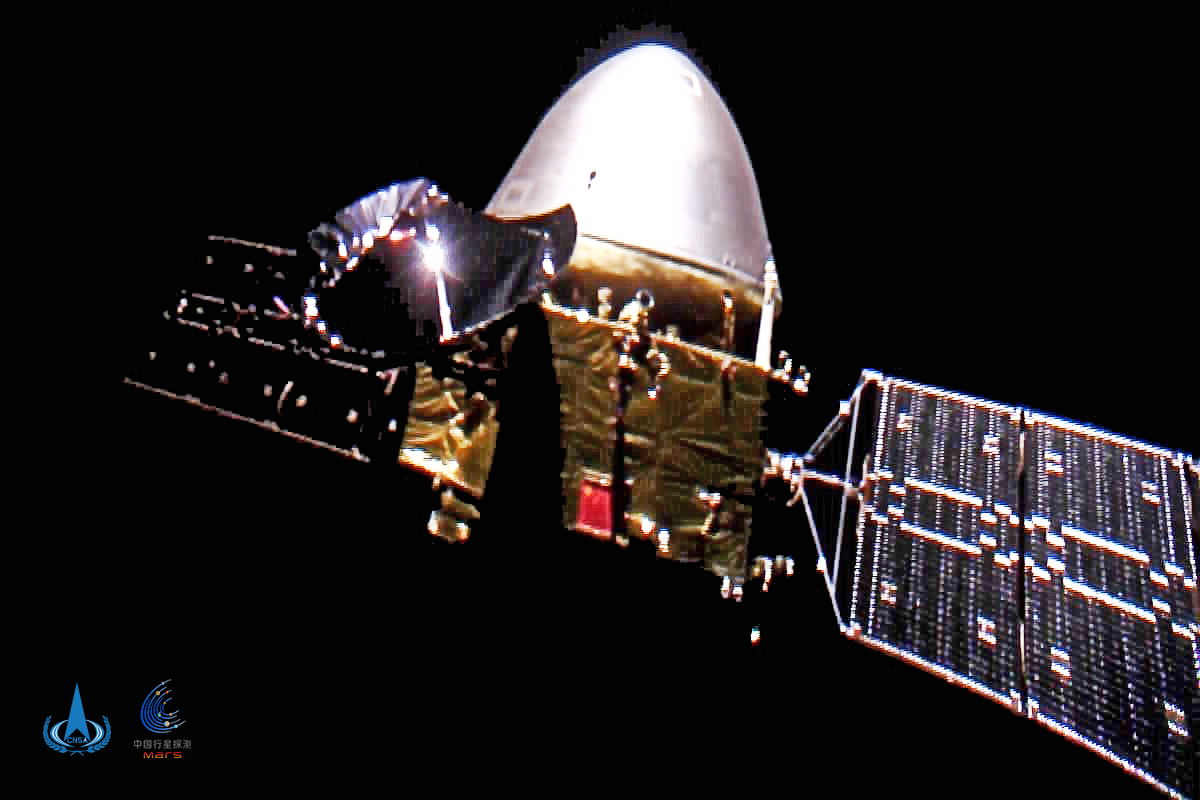China's Mars probe 100m km from Earth


China's Tianwen 1 Mars probe had been 100 million kilometers far from the Earth as of Monday evening, and had traveled nearly 360 million km by that time, according to the China National Space Administration.
The administration said in a statement on Tuesday morning that the spacecraft had been in good condition. By 9 pm on Monday, the robotic probe had flown 144 days in an Earth-Mars transfer trajectory, around 12 million km away from the red planet, it noted.
By now, the spacecraft has fulfilled three midcourse corrections and a deep-space orbital maneuver, and will make several orbital corrections before approaching Mars in mid-February, according to the administration.
Tianwen 1, the country's first independent Mars mission, was launched by a Long March 5 heavy-lift carrier rocket on July 23 at the Wenchang Space Launch Center in Hainan province, opening the nation's planetary exploration program.
If everything goes according to schedule, the 5-metric ton probe, which consists of two major parts – the orbiter and the landing capsule, will travel more than 470 million km before getting captured by the Martian gravitational field in February, when it will be 193 million km away from Earth.
Depending on the two planets' orbits, Mars is from 55 million km to 400 million km distant from Earth.
The mission's ultimate goal is to soft-land a rover in May 2021 on the southern part of Mars' Utopia Planitia -- a large plain within Utopia, the largest recognized impact basin in the solar system -- to make scientific surveys.
If Tianwen 1 can fulfill all of its three objectives — orbiting Mars for comprehensive observation; landing on the planet surface; and deploying a rover to conduct scientific operations, "it will become the world's first Mars expedition accomplishing all three goals with one probe," said Ye Peijian, a leading scientist in deep-space exploration at the China Academy of Space Technology.
- Expats discover ancient architecture in Shanxi
- Logo contest for 2026 China-Africa Year of People-to-People Exchanges kicks off
- Chinese premier calls for reform in standardization work to boost high-quality development
- Xi congratulates China Agricultural University on 120th founding anniversary
- Drones make cleaning of high-rises safer, quicker
- Brain cancer drug cleared for phase III clinical trials





































